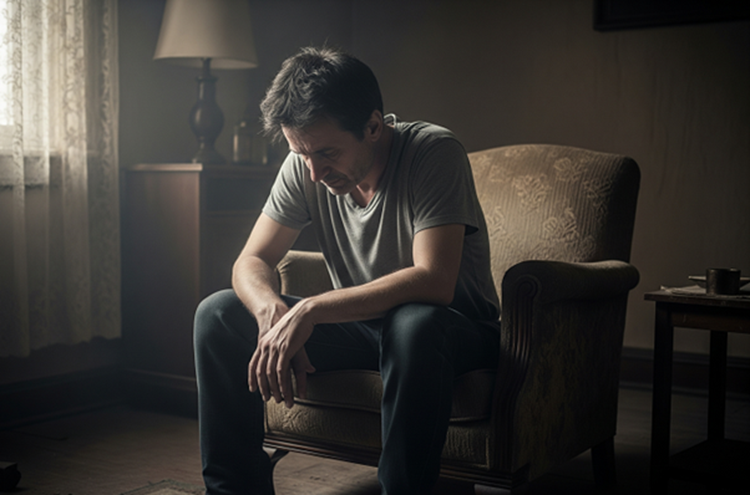Drug addiction is a major obstacle for today’s society. The issue of substance use affects the people who use drugs as well as their families, friends, and the entire community. Those affected by addiction often find themselves using drugs excessively, even though it brings harm, so escaping is hard. It is necessary to seek professional assistance when trying to end this cycle. Together with trained specialists, people get the support, resources, and ideas required to become and stay free of drugs.
At Palm Coast Treatment Solutions, we realize that drug addiction has an impact on a person’s mental, physical, social, and work-related well-being. For this reason, we offer compassionate care that is based on proof and ready to match you at your stage of recovery.

Why Choose Our Drug Rehab Program in Palm Coast?
We help patients by focusing on healing for the long run, using therapy plans that fit their personal needs. Our program for drug addiction uses medical science together with holistic approaches to deal with the reasons behind addiction.
What We Do is:
- Getting Medical Support During Detox (whenever it is required)
- Treatment programs for people with problems that coexist
- CBT and DBT are some of the approaches used.
- Both group and individual forms of counseling are used here.
- Knowing what to do and how to avoid relapse
- Family members can be included in and supported through the services.
- Aftercare and Ongoing Recovery Planning
Signs and Symptoms of Drug Addiction
It is essential to spot the signs and symptoms early so that drug addiction can be managed effectively. There can be physical, behavioral, or psychological signs, all of which change depending on the substance and the person’s situation.

Physical Symptoms
Physical and medical changes in a person can spot the presence of drug addiction. Usual indications include a fast gain or loss of weight, not looking after personal hygiene, eyes with a red tint, and a bad body odor. Track marks may be visible on the person’s skin, and some may also experience several nosebleeds, mostly from taking drugs through the nose. Signs such as a change in eating or sleeping habits, tiredness, illnesses without known causes, and always feeling tired may be related to someone’s substance use.
Behavioral Symptoms
The signs of drug addiction usually show up as major changes in a person’s actions. At times, individuals do not fulfill their responsibilities either at work, in school, or at home. They could stop spending time with family members, friends, and doing activities that used to give them joy. Stigma-free examples are when the person interacts less with the family, tries to hide their substance use, and has money problems due to their forced drug purchases. At times, a person may drive when intoxicated or get themselves into legal challenges because of their drug use.
Psychological Symptoms
Drug addiction can make someone irritable, nervous, depressed, and even suspicious. Sometimes individuals get quite upset and angry when unable to find a way to satisfy their craving for drugs. In the future, they may stop enjoying activities they liked before and begin to feel desperate and less worthy of themselves. At a more serious point, sometimes hallucinogenic drugs can lead a person to think others are out to get them or experience fake sights and sounds.
Drug Addiction Treatment Options
Any good addiction treatment program needs to focus on the physical as well as the psychological side of the individual. Because everyone is unique, deciding on the best treatment mainly depends on factors including the person’s needs, the level of dependence, and the substance being used.
Inpatient/Residential Treatment
Patients in residential or inpatient treatment services are cared for in a live-in medical facility that is very organized. Because each individual stays at the rehab for 30 days or more, inpatient care is best suited for those who have not done well with outpatient care, relapsed before, or live with addiction and a mental health diagnosis. Since this is an immersive spot, patients concentrate fully and receive 24/7 support, so there is a better chance for a successful recovery. Often, these programs mix talk therapy, therapy in groups, and holistic approaches such as yoga and meditation for the complete healing of a person.
Therapeutic Approaches
In general, drug addiction treatment includes different approaches to discover the reasons behind addiction and encourage people to establish positive ways to avoid relapse.
Cognitive Behavioral Therapy
CBT is recognized for its success in treating addiction since it works on correcting addicted individuals’ self-defeating thoughts. Skills are taught so that people can better handle stress, detect and avoid temptations, and prevent a relapse. Addiction patients who practice CBT learn how to manage their feelings, decisions, and actions, which helps them lead a drug-free life.
Dialectical Behavior Therapy
Both DBT and other therapy options are effective for those who wrestle with mental health challenges as well as substance misuse issues. As a form of CBT, DBT encourages mindfulness to help people control their feelings and handle social struggles and difficult situations. For people who find it difficult to deal with their emotions and impulses leading to addiction, this therapy is very effective.
Medication-Assisted Treatment
Behavioral therapy used together with medications is a part of the successful Medication-Assisted Treatment (MAT). MAT is mainly applied for opioid addiction, yet it may help those who struggle with alcohol and different types of substance abuse. The use of methadone, buprenorphine, and naltrexone makes it easier for patients to concentrate on other parts of their recovery. Many times, MAT is accompanied by counseling and support groups to give each person the best care possible.
Personalized Treatment Plans
For treatment to work well, each person’s plan must be specially designed for them. To make an effective plan, counselors pay attention to a patient’s use of substances, as well as their mental and physical health.
Assessment and Evaluation
Usually, your doctors will perform a complete evaluation during the first step of treatment. When conducting the assessment, the interview is used to discover the patient’s drug history, medical disorders, and any other issues affecting their well-being. From this information, clinicians accurately assess the addiction and also note other problems that should be handled. Referring to this evaluation, a specialized treatment schedule is put together for the patient’s well-being.
Family Involvement
Being involved in the recovery of a family member is very important when someone has drug addiction. Because smoking and alcohol addiction touch every member of the family, interventions that focus on the family can help with recovery a lot. Many times, group sessions work on strengthening how families interact, their relationships, and the level of trust among each other. Such meetings inform families about addiction so they can help their loved one recover successfully.
Relapse Prevention
Relapse prevention is an important part of the process of recovery. It identifies any factors, such as stress, the push from peers, or feelings, that can bring about a drug relapse. Going through relapse is a part of many people’s paths to recovery, and it is important to get treatment right away if it happens.
Ready to Take the First Step Toward Recovery?
You don’t have to face drug addiction alone. At Palm Coast Treatment Solutions, we’re committed to helping you or your loved one achieve lasting recovery with compassion, expertise, and personalized care.
Call us at (386) 284-4151 to schedule a confidential consultation today.
FAQs:
How to deal with a drug addict?
Empathize with the person who is addicted, do not judge and refer him/her to professional treatment. Healthy boundaries, educate about substance use disorders and family support. Early intervention, counseling and relapse-prevention planning enhance positive recovery and long-term stability of individuals.
What is the treatment of drug addiction?
Treatment of drug addiction is a combination of medical detox treatment, behavioral therapies, counseling, and individualized care plans. Some of the programs that can be used are the inpatient rehabilitation, outpatient rehabilitation, medications, family, and relapse prevention programs to treat physical, psychological as well as social components of substance use disorders.
What is the most effective treatment for addiction?
Individualized treatment is the most effective form of addiction treatment that incorporates evidence-based treatment options such as CBT, DBT, medication-assisted treatment, and counseling. The most successful and long-term recovery and relapse prevention outcomes are offered in comprehensive interventions on mental health, triggers, and lifestyle factors.
What therapies are used in drug addiction treatment?
Some of the therapies applied in treatment of drug addiction include the use of cognitive behavioral therapy, dialectical behavior therapy, group counseling, and individual therapy. Through these methods, patients are able to cope with the triggers, transform negative thought processes, control emotions, and learn positive ways to cope with a lifelong recovery.
Why is personalized treatment important for addiction recovery?
Individualized addiction therapy is key since the history of substance use, health conditions and mental conditions vary with every person. Personalized interventions grounded on clinical evaluation enhance the results, provide focused treatment, and facilitate long-lasting recovery with the help of specific medications and formal support networks.












